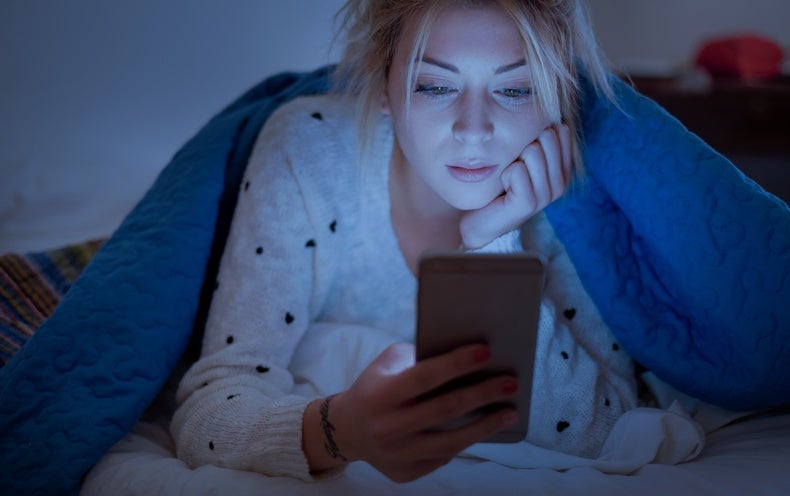A study conducted by NIMHANS (National Institute of Mental Health And Neuro Sciences) in the year 2019 states that 65.5% of the respondents admitted to the fact that they use mobile phones before they sleep. The surprising fact is that among the respondents who said that they use mobile phones before bed, it is observed that 70% of men and 54% of women reported poor quality sleep. It is evident from this study that sleep quality and exposure to electronic devices before bed has an indirect correlation to each other. Despite doctors, nutritionists, elders, parents, many wellness living programs constantly advising us not to take mobile phones to our bed, it has become an unstructured leisure activity for most of us today without any restriction on the starting and stopping time. We all sleep and wake up with the guilt of having this bad habit. If you are one among that crew, this article would throw light on how late-night exposure to electronic devices can disrupt our circadian rhythm/sleep cycle.
Blue light is the reason for your daily blues:
Earlier when there was no access to bright and super-powered lights, the human’s biological clock worked according to the sunlight, basically the sunrise and the sunset. Our body releases cortisol hormone, which keeps us alert when it is exposed to light, and releases melatonin hormone also known as sleep hormone as we approach night. Today, powerful lights and LED lights have been constantly disturbing our hormone secretion and have delayed our sleep cycles. The backlit electronic devices such as mobile phones, laptops, computers, tablets, etc. emit blue light which confuses our body, making it feel like it is still day. This delays the production of melatonin, and eventually, we take time to fall asleep. Research has also found that exposure to blue light during the night can reduce the quality of sleep and make us feel dull, tired, disinterested which we call blues in the modern language.
Affects your cognitive ability:
The blue light emitted by electronic gadgets also reduces the time in REM (Rapid Eye Movement) which is essential for the processing and storing of information from day to memory. When there are poor/disturbed REM sleep patterns, the happenings, andlearnings of that day will no longer be processed and stored in our brains, ultimately affecting our memory power. Thus, even if you study hard or stay awake in your algebra class, the information learned that day will never be stored in your brain forever as it affects your brain development, cognitive ability, and creativity.
Thus, it is a proven fact that late-night exposure to electronic devices does not only disrupt our sleep cycle, but they are also destroying our overall health. Even studies have recommended that it is crucial for every human being to have a good night’s sleep of 7 to 8 hours a day to be mentally and physically fit. Finally, here are some tips you can do to use your favourite gadget and stay connected with your loved ones but still have a better sleep:
- Stay away from troubling/controversial media content that induces you to check your notifications constantly.
- Throw your phone away at least 30 to 45 minutes before your bed. Complete all your tasks, checking emails, chats, meets, and anything else 30 minutes before your bedtime. If you think that your mobile is your only source of entertainment, go for a slow walk within your apartment/in a park to relax.
- Change the lights in your bedroom, if they are extremely bright or if you use LED lights. Instead of bright white and blue lights, you can switch to dim yellow/green/soothing lights.
- If you are an e-reader, use the apps in night mode to filter out the blue light emissions from your gadgets.
- Try investing in glasses that filter out blue-light emissions if nothing is possible.
When you are aware, you tend to stop repeating patterns. So, feed your brain about how your sleep gets affected and what are the after-effects of poor quality sleep. When you feed your brain with the right information, you will slowly and gradually change your lifestyle.
